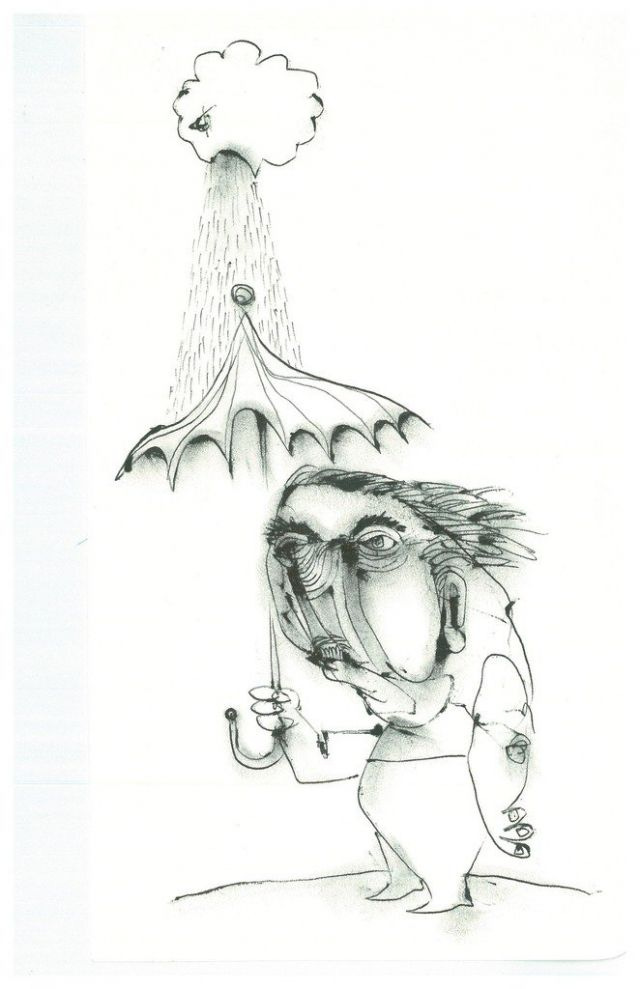It’s Time For Some Game Theory
Maddd Science

I hadn't heard of game design lead Jennifer Scheurle before her viral tweet asking game devs for their game mechanic secrets in September, but I followed her and I've definitely appreciated her game wisdom since. I'm really not a huge gamer — although I do zone out to Spelunky and Slitherio way more than I should — but I love hearing about the nuts and bolts of how to suck as many positive chemicals out of players' brains as possible.
Anyway, after Scheurle's tweet spurred an entire cycle of game site hot takes, she wrote her own article for Polygon (with a follow-up for Rolling Stone) on hidden game tricks like "Doom adjusting a player's health bar, System Shock cranking up the damage of a final bullet and BioShock making failing players momentarily invincible."
Games aren’t always fair, the magic lies in making you think they are
Jennifer Scheurle, Polygon
You are a deeply flawed, irrational being who is terrible at truly understanding chance, distance, time and numbers. Don’t feel bad, everyone else on the planet is in the same boat.
A majority of players will feel utterly betrayed if they miss a 50 percent chance twice in a row. That outcome is possible mathematically, but most people feel as though they were treated unfairly when they are in the mindset of play. They assume that a 50 percent chance means they will lose once, and succeed once. Games often fudge their numbers a bit to match what you think the results should be, not what the statistics show they would be.
We think of playing games as "having fun." Strictly speaking, that's not true most of time:
How Technology Gets Us Hooked
Adam Alter, The Guardian
Tetris is a game with a very strong negative motivation. You never see what you have done very well, and your mistakes are seen on the screen. You always want to correct them.
This next article is a simultaneous (A) love letter to the architecture of the history-hopping Assassin's Creed franchise and (B) hate mail to the "tepid" story mechanics that keep players from exploring freely.
Reaching out towards the past in Assassins Creed Origins
Gareth Damian Martin, Eurogamer.net
The necessity of keeping your attention on the next handhold or gap in order to wrangle this climbing system into behaving forced the player's attention onto the rough stone and bricks of Acre, Damascus, and Jerusalem. Each of these cities, modeled with a level of detail and care that few games of 2007 could compete with, became the centrepieces of the game. There was something in the act of touching, scrambling across and eventually surmounting these structures that felt like such a powerful way of connecting with historical architecture.
Game theory isn't just for games. It's also a great way to market yourself into masterminding a series of blockbuster books about kinky sex. Here's the best drama-packed, acronym-and-jargon-heavy reddit comment you'll ever read.
This in-depth look at the growth hacks and cheats behind 50 Shades of Grey’s success
FSOG had 80 chapters. That means that a lot of people actually reviewed that fucking thing EIGHTY times. So even if she had only 100 super loyal readers, that's 8,000 reviews (think upvotes). People see a story with 8,000 reviews and want to click it to see what all the fuss is about. I think it had something like 20,000 reviews when it was pulled down for publishing.
The Feminist Legacy of the Baby-Sitters Club
Brooke Hauser, The New Yorker
Martin was careful to make clear to her readers that the girls came up with all of this on their own. “I felt it was important for them to create the rules themselves—for the rules not to be imposed on them or even suggested to them by an adult,” she told me. For many of us, the Baby-Sitters Club offered an early glimpse into the world of ambitious working women. Granted, they were middle-schoolers, but they were girl bosses, role models long before pop culture gave us Olivia Pope, Liz Lemon, or Leslie Knope.
Here's a pre-release Star Wars hot take that's really just a way for the author to get to the good stuff: A quick list of wildly different things people have compared to Empire Strikes Back.
Please don't let The Last Jedi be another remake of Empire Strikes Back
Chaim Gartenberg, The Verge
It’s not just movies, either. Video games do it, too: BioWare co-founder Greg Zeschuk compared Mass Effect 2 to Empire when teasing that sequel, and game designer Antoine Thisdale told Polygon it was a touchstone when promoting Deus Ex: Mankind Divided. Even comic-book writer Grant Morrison threw around the analogy when teasing his upcoming Wonder Woman: Earth Two graphic novel at Comic-Con this year.
Bad news for Tolkien fans:
How Can We Untangle White Supremacy From Medieval Studies?
Helen Young w/ David M. Perry, Pacific Standard
In Middle Earth, unlike reality, race is objectively real rather than socially constructed. There are species (elves, men, dwarves, etc.), but within those species there are races that conform to 19th-century race theory, in that their physical attributes (hair color, etc.) are associated with non-physical attributes that are both personal and cultural. There is also an explicit racial hierarchy which is, again, real in the world of the story. Middle Earth is literally a racist's fantasy land.
Video: Jurassic World, Jurassic Values
Here's a chaser to follow that 30-minute lecture I featured last week. It's the same guy, since... he does nothing with his life but hate on Jurassic World? A life well lived, that's what I say.
Next Week, on Maddd Science: Why “Show, don’t tell” is dumb
Header image: "self-fulfilling prophecy of the rain-god," by Daniel Williams.